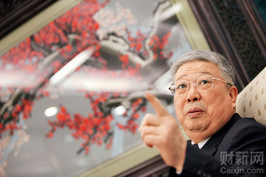Bo Xilai’s Decline and the Future of Chinese Legal Reform
[China’s Xinhua News announced Bo Xilai’s removal from the Party posts.]

Many Chinese still remember how Bo Xilai, then the party secretary of Chongqing City, charged a criminal defense lawyer Li Zhuang for perjury and coerced him to plead guilty without due process of law, which the liberal jurists in China treasured; when Bo became a strong candidate for the post of the Politburo standing committee to be in charge of the legal departments, the liberal jurists were more worried; after Bo further announced the intention to revive the Maoist legacy in law, the liberal jurists almost felt hopeless: if that happened in China there would be no future for the rule of law, which they had fought for many decades.
Bo’s campaign against official corruption and organized crime in Chongqing City confirmed many of the worries, since torture and coercion were used extensively to produce confessions, according to Professor Tong Zhiwei’s report.
In a lengthy report on the so-called anti-crime campaign in Chongqing, Tong Zhiwei, a law professor at Shanghai’s East China University, makes a detailed case that the campaign went well beyond Chinese law. Secret arrests and forced confessions were routine, Tong says.
The liberal jurists in China should feel at ease now, since just a few hours ago the Chinese Central Government announced that the ousted former Chongqing party chief Bo Xilai had been stripped of his party positions. With Bo’s decline, the worries about the revival of Maoist-style law may soon disappear. As for the future of legal reform in China, however, it remains to be seen how Bo’s story will continue to unfold and to influence the soon-to-take-place 18th Chinese Communist Party Congress.
An interesting detail in this story is that Bo’s wife Gu Kailai is now charged with the murder of a British businessman Neil Heywood for “economic disputes.” The term “economic disputes” hints Bo’s own involvement in corruption, and if proven Bo’s public image as a fighter against official corruption would be completely destroyed. Right now, perhaps Bo is secretly hoping that on his wife’s case the police would not conduct a Maoist-style investigation that he himself revived.
Further reading:
Reuters: China ejects Bo from elite ranks, wife suspected of murder




